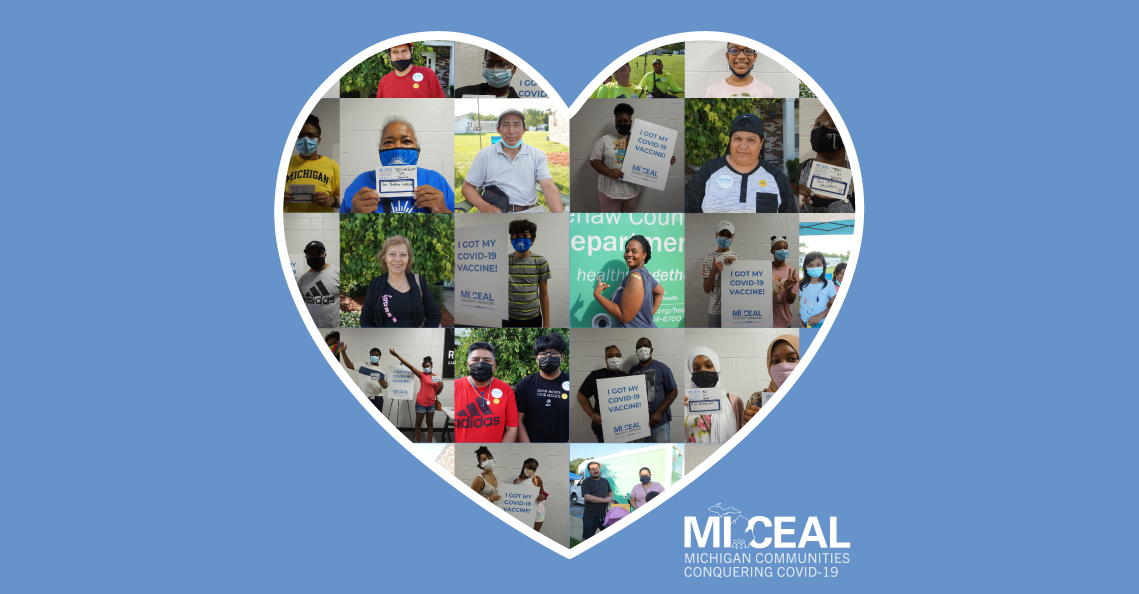
Reducing COVID-19 Disparities in Michigan with MICEAL
Haley Crimmins
The Michigan Community-Engaged Alliance (MICEAL) is working to address the gap of vaccine and health inequities in Latinx and Black populations in four Michigan counties. Health Behavior and Health Education master's student Haley Crimmins details MICEAL's work.





